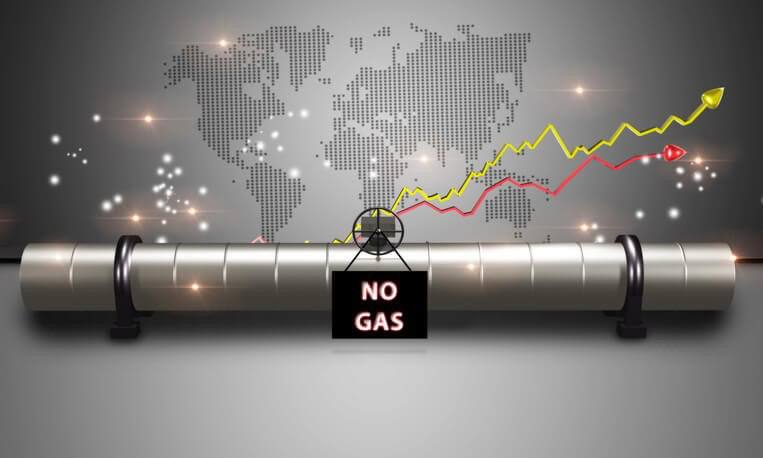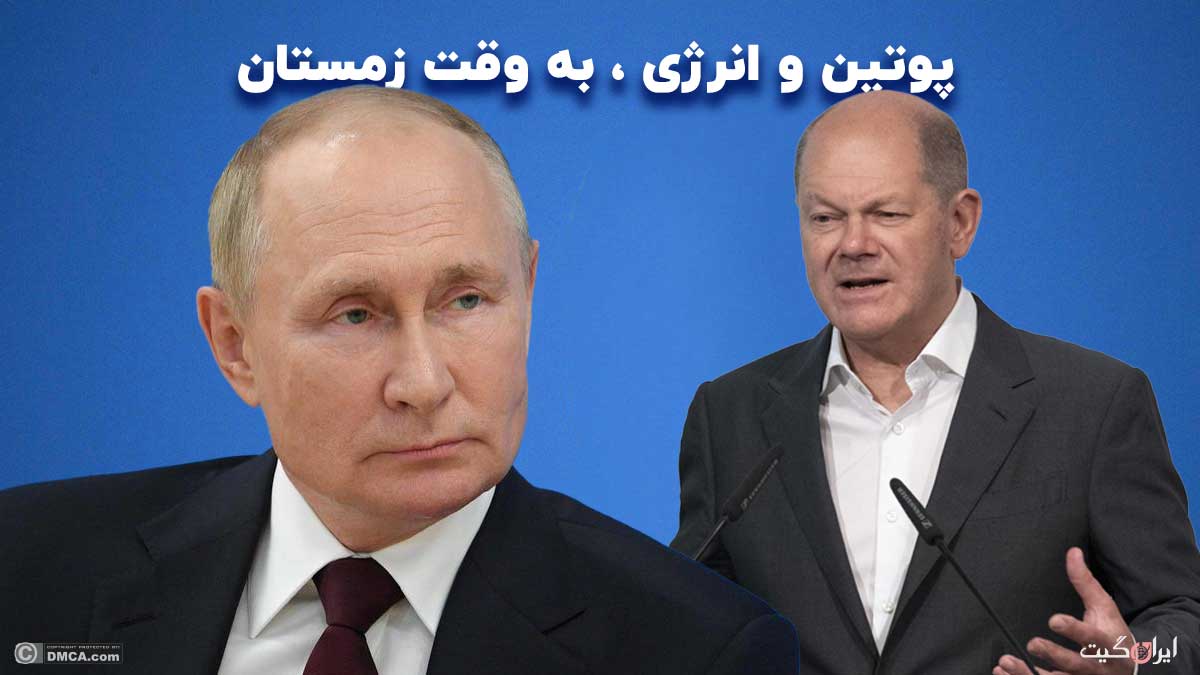Putin and Energy in Winter Time
Between September 2021 and August, based on calculations by the Bruegel think tank, Germany allocated approximately 602 billion euros to combat the energy crisis, the highest figure in the European Union.
However, according to this think tank, this amount is relatively small at 17% compared to Germany’s GDP per capita. Currently, Germany ranks first in terms of resources allocated to families and businesses, followed by Italy with 495 billion euros in second place.
Comparing the percentage relative to GDP per capita among the countries with the most performance, Greece and Lithuania, followed by Italy, can be mentioned with about 28%.
France, with 447 billion euros equivalent to 18% of GDP, and Spain, with 273 billion euros or about 23% of GDP, are on this list. Finland can also be named as another country that decided to allocate resources to electricity-producing companies to adjust energy prices.
The Finnish government offered loans and guarantees up to 10 billion euros to the country’s electricity companies to ensure their cash resources are sufficient. Finnish Prime Minister Sanna Marin announced at a press conference that the government provides loans and guarantees on a case-by-case basis to companies whose continued operation is vital and necessary for society.
Additionally, Finnish Finance Minister Annika Saarikko said at a press conference that the government wants to keep the electricity and its derivatives market calm in the future with this financial guarantee and ensure access to electricity in the country under any circumstances. Similarly, the Swedish government announced a similar measure on a broader scale.
The End of Nord Stream
Chancellor Scholz announced that energy producers are exploiting the very high gas prices, which are indeed a determining factor in electricity prices, and in Germany, like many other European countries, people’s purchasing power is declining due to the skyrocketing energy prices and rising inflation.
For this reason, the German government announced a 65 billion euro support plan to mitigate the effects of rising energy prices on citizens’ lives.
This is the third intervention by the German government to help families and businesses support them against rising energy costs. This aid package was presented after Gazprom announced it would not resume supply through the Nord Stream pipeline.
Two days after Gazprom’s announcement of not restarting through the Nord Stream gas pipeline, the parties forming the ruling coalition in Germany, the Greens, the Liberals, and the Free Democratic Party, agreed on a support plan against expensive living.
This plan, worth approximately 65 billion euros, aims to support millions of families to cope with rising electricity prices as Europe faces its most serious energy crisis in decades.
Chancellor Scholz announced that Berlin intends to help reduce household bills and invoices from the additional profits of some energy companies that have benefited from the sudden rise in energy market prices. This means that the plan is mainly funded through a windfall tax on energy companies’ additional profits, which, according to Finance Minister Lindner, will guarantee a double-digit billion euro revenue for the federal government.
In a document prepared after weeks of discussions between the three coalition parties, the German government notes that this aid requires significant additional costs in the federal budget. According to Bloomberg, the federal government will provide 40 billion euros of this plan, with the remaining amount covered by the states and municipalities.

Scholz reassured his fellow citizens that Germany can face the winter and, despite the lack of gas supply from Russia, ensures the necessary energy supply for the country, which the economy heavily depends on.
Overcoming Winter with an Unreliable Partner
He told the press that Russia is no longer a reliable energy supplier, and we will overcome this winter. The federal government has been prepared for this possibility since the beginning of the year and emphasized that thanks to the diversification of energy supply sources and rebuilding energy with the country’s gas reserves, it can deal with a prolonged Nord Stream gas pipeline outage.
Meanwhile, German Economy Minister Robert Habeck announced that the level of Germany’s gas storage facilities has surpassed 85%, a threshold the government aimed to reach by October 1 according to a pre-determined plan but managed to achieve a month ahead of schedule. However, the storage levels may decline again.
According to Sebastian Bleschke, director of the association of industrial operators, storage facilities will continue to be filled because Germany is currently receiving more gas from Norway and the Netherlands. However, he noted that if Russian gas supply is permanently cut off, the next goal of reaching 95% storage by November 1 will only be achieved with great effort.
Like many European countries, Germany is facing a serious growing energy crisis that began after the war against Ukraine and international sanctions against Russia.
The German government has activated the second phase of the gas emergency plan at three levels and is considering the possibility of abandoning various energy and environmental policies to create consequences and conditions, including extending the lifespan of nuclear and coal power plants.
The inflation rate rose to 7.9% in August, and according to the Bundesbank, this figure could reach 10% by the end of the year, a figure unprecedented since 1950. Rising energy prices and Germany’s successive policy changes towards Ukraine have caused major problems for the Scholz government, even reducing his popularity among German public opinion.
Four Major Actions of the Coalition Government
Among the main and important actions approved by the ruling coalition are the following:
1. Payments for pensioners and students on December 1, pensioners will receive a 300-euro allowance to pay their bills, and a 5 billion euro tax reduction will be applied for them in 2023. Students and trainees will also receive a 200-euro check. 2. Electricity price control, so that a fixed price is considered for final electricity consumption up to a certain threshold.
3. New nationwide local transport ticket replacing monthly tickets. The federal government plans to allocate 15 billion euros to national local transport, although this budget has not yet been approved by the states. 4. Finally, the government wants to add 18 euros to the family allowance payment for the first and second children.
Other related articles on this topic are available on Iran Gate that you can read.
- Russia, Europe, and China in the 2022 Energy Battle
- Moscow’s Battle with Energy Weapons
DMCA Protected Cover

